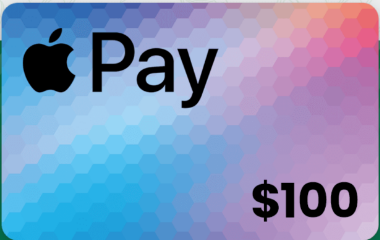Private health insurance is an alternative to public or government-subsidized plans like those offered through the Health Insurance Marketplace. It’s often a popular choice for people who are self-employed, have higher incomes, or want more customized coverage than what is available through government options. One of the first steps to obtaining private health insurance is getting quotes from various providers.
In this guide, we’ll explain the process of finding private health insurance quotes, how to compare plans, and what factors to consider to ensure you choose the best policy for your needs.

Table of Contents:
- What is Private Health Insurance?
- How to Get Private Health Insurance Quotes
- Factors to Consider When Comparing Private Health Insurance Quotes
- Best Private Health Insurance Providers
- How to Save Money on Private Health Insurance
- Frequently Asked Questions (FAQs)
- Conclusion
1. What is Private Health Insurance?
Private health insurance refers to health coverage provided by non-governmental organizations, such as insurance companies or employers. Unlike public insurance programs, which may be government-funded or subsidized, private health insurance plans are usually purchased by individuals or families directly from insurance providers.
Private health insurance plans typically offer a variety of coverage options and flexibility in terms of network providers, premiums, deductibles, and coverage limits. Some individuals may choose private insurance when employer-sponsored plans aren’t available or when they prefer more comprehensive or specialized coverage.
Types of Private Health Insurance Plans:
- Individual Health Plans: These plans are for individuals who don’t have employer-sponsored insurance and need their own health coverage.
- Family Health Plans: These plans cover both individual and family members, offering comprehensive coverage for parents and children.
- Short-Term Health Insurance: These plans are intended for temporary coverage, such as when transitioning between jobs or waiting for another insurance plan to begin.
2. How to Get Private Health Insurance Quotes
To find the best private health insurance plan, the first step is to gather quotes from different providers. Here’s how you can do this effectively:
a. Gather Personal Information
Before you request quotes, gather the necessary information about yourself or your family, including:
- Age and gender of all individuals to be covered
- Medical history and current health conditions
- Preferred doctors or healthcare providers (if you have specific preferences)
- Your location (as insurance plans may vary by state)
- Whether you’re looking for individual or family coverage
b. Research Providers
There are many private health insurance companies available, and each offers different plans and coverage options. Some well-known private insurers include:
- Blue Cross Blue Shield
- Aetna
- UnitedHealthcare
- Cigna
- Humana
Visit their websites or call their customer service teams to inquire about specific plans and request quotes.
c. Use Online Comparison Tools
Several websites allow you to compare health insurance quotes from multiple providers at once. These platforms will ask for your personal information and then generate quotes based on your responses, which can help you narrow down your options and make comparisons easily.
Some popular comparison websites include:
- HealthCare.gov (for Marketplace plans)
- eHealth.com
- GoHealth.com
d. Work with an Insurance Broker
An insurance broker can assist you in navigating the complex world of private health insurance. Brokers can help you find multiple quotes from different insurers and guide you through the enrollment process. Typically, brokers do not charge fees, as they receive a commission from insurance companies.
3. Factors to Consider When Comparing Private Health Insurance Quotes
When you’re evaluating private health insurance quotes, consider the following key factors to ensure you select the best plan for your needs:
a. Premiums
The premium is the monthly amount you pay for health insurance coverage. Premiums can vary significantly between plans and providers. While lower premiums may seem more attractive, they might come with higher out-of-pocket costs like deductibles and co-pays, so it’s important to balance premiums with other cost factors.
b. Deductibles
The deductible is the amount you pay out of pocket before your insurance kicks in. Plans with low premiums often have higher deductibles, and vice versa. Consider how much you are willing to pay before your insurance covers medical expenses.
c. Coverage and Benefits
Review what each plan covers, including:
- Preventive care: Many private plans offer free or low-cost preventive services like vaccines, screenings, and wellness checkups.
- Hospitalization and surgery: Ensure the plan covers inpatient and outpatient procedures, including surgeries, diagnostic tests, and hospital stays.
- Prescription medications: Check whether your medications are covered and whether they fall under a specific tier that might affect the cost.
- Mental health services: If you need mental health services, make sure they are covered, as not all plans offer comprehensive coverage in this area.
d. Network of Providers
Private health insurance plans often have a network of doctors, hospitals, and specialists. Some plans offer a broader network than others. If you already have preferred healthcare providers, check if they are included in the plan’s network.
There are three common types of networks:
- Health Maintenance Organization (HMO): Requires you to use in-network providers and get referrals for specialists.
- Preferred Provider Organization (PPO): Offers more flexibility by allowing you to see out-of-network providers at a higher cost.
- Exclusive Provider Organization (EPO): Similar to PPOs but typically only covers in-network care except in emergencies.
e. Out-of-Pocket Costs
Out-of-pocket costs include your deductible, co-pays, coinsurance, and any other expenses not covered by your plan. The out-of-pocket maximum is the most you'll pay in a year before the plan covers 100% of your healthcare costs. Compare out-of-pocket costs to determine which plan fits your budget.
4. Best Private Health Insurance Providers
Several private health insurance providers are known for offering quality coverage and customer service. Here’s a look at some of the best options:
a. Blue Cross Blue Shield (BCBS)
Blue Cross Blue Shield is one of the most well-known insurance providers in the U.S. It offers comprehensive plans, including PPO, HMO, and catastrophic plans, as well as Medicare Advantage and prescription drug coverage.
b. UnitedHealthcare
UnitedHealthcare is one of the largest insurance providers, offering a range of health insurance products for individuals and families. They provide nationwide coverage and access to an extensive network of healthcare providers.
c. Aetna
Aetna is another leading health insurance provider, known for its robust plan options and customer service. Aetna offers individual, family, and Medicare plans, and they provide resources to help individuals manage their health.
d. Cigna
Cigna offers both individual and family health insurance plans, as well as health management resources. They provide PPO, HMO, and HDHP plans and offer global health coverage options for travelers and expatriates.
e. Humana
Humana offers a variety of health insurance plans for individuals, families, and seniors. Their options include PPO, HMO, and Medicare Advantage plans, and they are known for their focus on wellness programs and preventive care.
5. How to Save Money on Private Health Insurance
While private health insurance can be expensive, there are ways to reduce your overall costs:
a. Consider a High-Deductible Health Plan (HDHP)
If you are healthy and don’t anticipate needing frequent medical care, an HDHP can be a great option. These plans offer lower premiums and may be paired with a Health Savings Account (HSA) for additional savings.
b. Shop Around for Quotes
Compare quotes from multiple insurance providers to ensure you’re getting the best deal. Use online comparison tools or work with an insurance broker to find competitive rates.
c. Review Plan Details Annually
Health insurance rates change annually, so make it a point to review and compare plans every year. You may find a better deal or plan that better suits your needs as your circumstances change.
d. Take Advantage of Preventive Care
Many private insurance plans offer free preventive care, such as screenings, checkups, and vaccinations. Taking advantage of these services can help avoid costly medical procedures down the line.
6. Frequently Asked Questions (FAQs)
Q: Can I get private health insurance if I already have employer-sponsored coverage?
A: Yes, you can purchase private health insurance while keeping your employer-sponsored coverage. However, consider if you need both, as it may be an unnecessary cost.
Q: Are private health insurance plans more expensive than public plans?
A: Private health insurance tends to be more expensive than public plans, but it often offers more flexibility and customization. Costs depend on the plan type, your age, and your location.
Q: How can I get an affordable private health insurance plan?
A: To find affordable private health insurance, compare quotes from multiple insurers, consider a high-deductible health plan, and check if you qualify for any subsidies.
7. Conclusion
Finding the best private health insurance plan involves understanding your healthcare needs, budget, and comparing quotes from different providers. By taking the time to carefully evaluate your options, you can find a plan that offers comprehensive coverage while fitting within your financial means. Remember to consider factors like premiums, deductibles, provider networks, and out-of-pocket costs to choose the right plan for you and your family.






